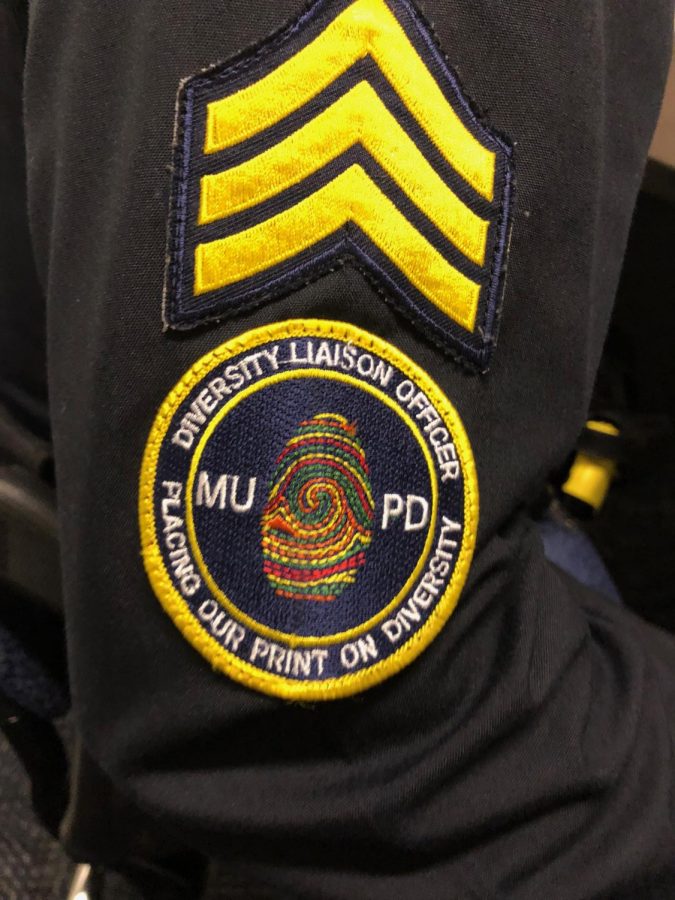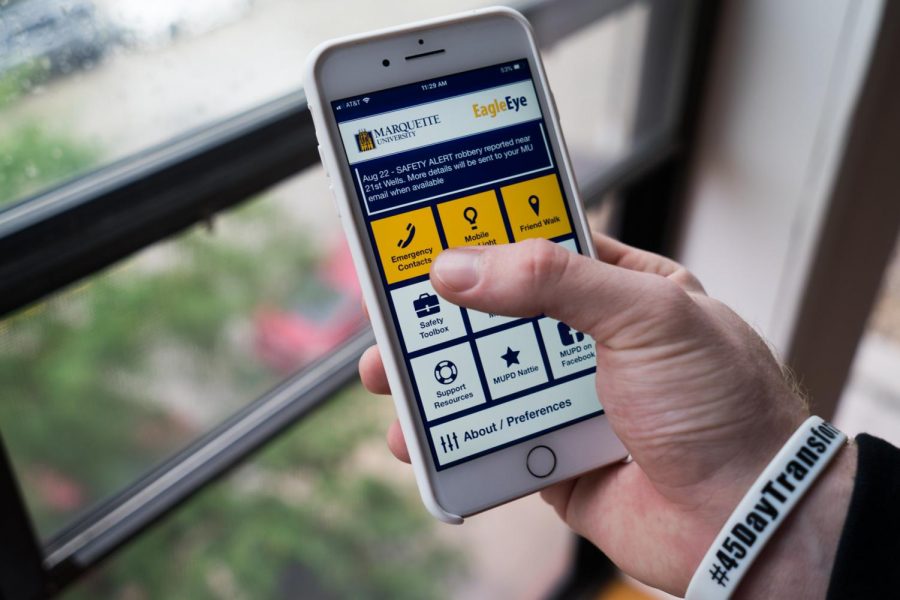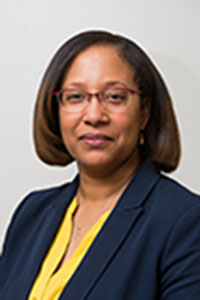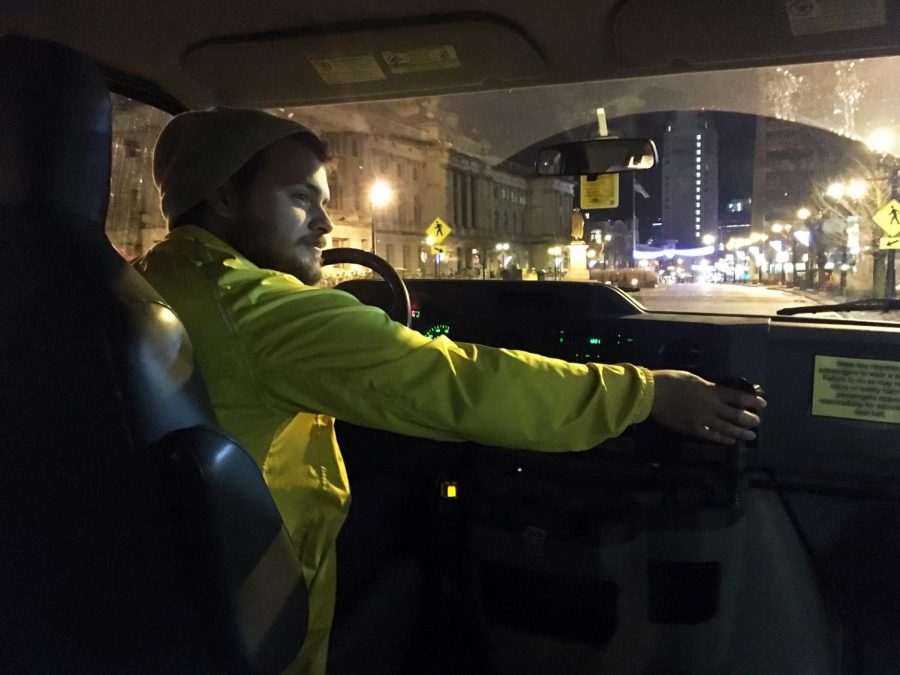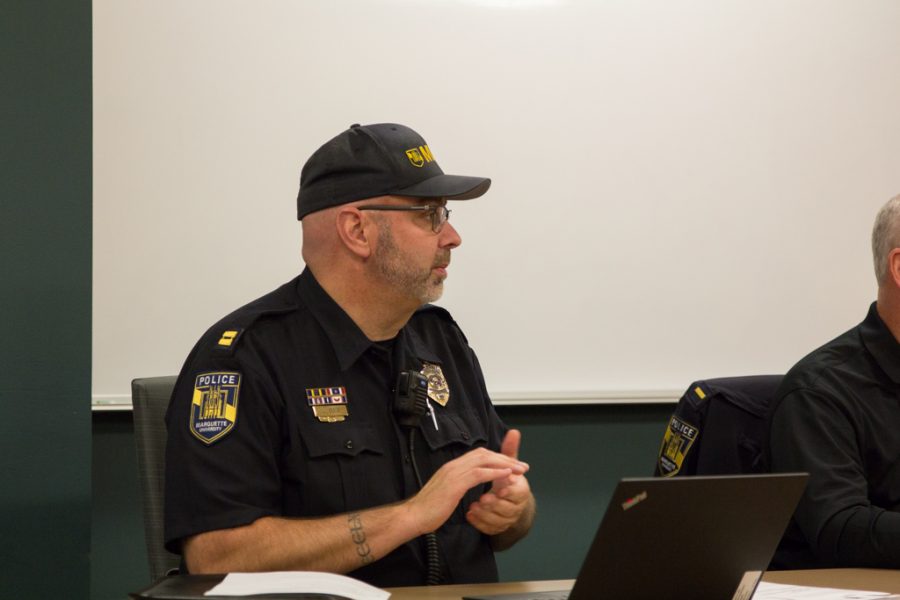The Marquette University Police Department enacted a new program earlier this month designed to bring the Marquette community together with MUPD and support those who feel they have been racially profiled by MUPD.
“The diversity liaison officer program, in a nutshell, is something we’re trying to utilize to bring the Marquette community together with the police, bridge the gap of misunderstanding and get a better working relationship with each other,” said the new leader of the program MUPD Sgt. Glenn Berrios-Schroeder.
MUPD created the program after a student had a negative interaction with an MUPD officer last year and said he felt racially targeted, Berrios-Schroeder said. After an investigation was conducted, the investigative team found that the officer did nothing wrong, but the student said he wished he could have had somebody to speak to.
The student, MUPD Capt. Jeffrey Kranz and Jacki Black, associate director for Hispanic Initiatives, met with other university staff members and officers to determine how this issue could be prevented in the future, Berrios-Schroeder said.
The student “felt strongly that there must be greater intentionality behind enhancing communication, bridging cultural gaps and increasing familiarity and trust between students of color and MUPD officers,” Black said in an email.
“I not only know this student personally but also happened to be present during the interaction and was asked to help facilitate follow-up meetings between the student and MUPD,” Black said.
Black, along with administrators from the Division of Student Affairs, the Educational Opportunity Program and the Office of Institutional Diversity and Inclusion, worked with MUPD to form the program’s goals, interview officers and provide additional bias training. They will continue to be involved with the program moving forward.
“We looked for officers that wanted to do it (and officers) that wanted to make a difference, and those officers have gone through diversity training here at the university,” Berrios-Schroeder said.
Sgt. Amy Oltendorf, member of the diversity liaison officer program, said she thinks the group of officers are a great mix of people and have very different backgrounds.
“I think we have a lot to learn from each and everyone in the community, and I think this program will benefit both the community and (Marquette),” Oltendorf said.
Oltendorf said she joined the program because she wants to help students who have had bad interactions with the police.
“Our diversity training consisted of learning about different backgrounds, cultures, races and sexualities,” Oltendorf said.
All officers have diversity training as part of finishing the police academy, but for the officers of the diversity liaison officer program, diversity is their specialty, Berrios-Schroeder said.
“This program will place a strategic focus on forging connections with diverse members of our campus community, including people of color, LGBTQ+ individuals, women and those from other diverse backgrounds,” Black said.
The diversity liaison officers will be assigned to different locations on campus, Berrios-Schroeder said. The officers said they hope to get more involved with students and staff and interact with student groups.
Berrios-Schroeder said that he hopes this program will also help students better understand interactions with law enforcement and ask questions before filing a complaint.
The diversity liaison officer program is based off a program at another university, Berrios-Schroeder said.
When launching the program, Berrios-Schroeder said he initially hoped that one or two officers would be members of the program, however the program has five.
Berrios-Schroeder said it is amazing to have that many officers.
Officers in the diversity liaison officer program can be distinguished by their special patches designed by Berrios-Schroeder. He said he hopes that students will notice the patches and form relationships with the officers.
“These officers could play a crucial role in helping break down any barriers that exist between MUPD and campus stakeholders as they become ‘go-to’ people when issues and concerns arise,” Black said. “The best outcome would be greater mutual understanding between MUPD and students and employees of color.”
Berrios-Schroeder said this program is necessary because the current state of the public’s perception of the police. He said he wants the community to get to know the police as people with a job to do.
“I think it’s necessary in order to bring things back to a common understanding of respect for each other,” Berrios-Schroeder said. “You can’t make things better if you just stay apart. You’ve got to come together.”

